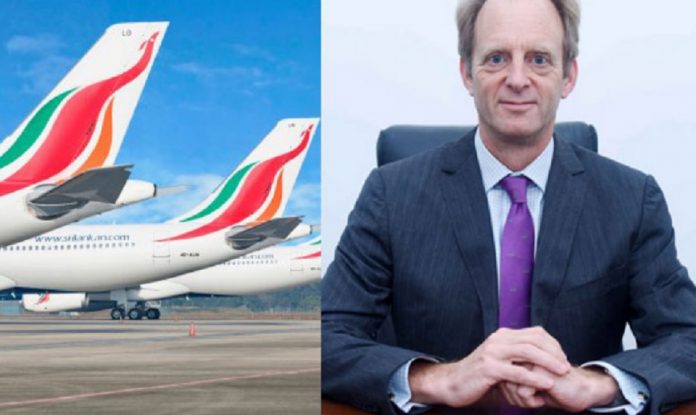Richard Nuttal, a person with a notorious history of defunctionalising Bahrain Air eight years ago, has been appointed as the new Chief Executive Officer (CEO) of the SriLankan Airlines, entitled to a remuneration of Rs. 9 million with all the facilities intact.
His appointment as the new SriLankan CEO comes in in contradiction to his original appointment as the Chief Commercial Officer (CCO) of the island nation’s airway on November 01, 2021, effective from January 01, 2022 without being subjugated to any performance appraisal whatsoever, sources disclosed.
Nuttal’s highest record in service was the shutting down of Bahrain Air, which he took over as the CEO in 2011, in 2013, making the gulf country’s once reputed air service defunct under his regime.
Read: Defunct Bahrain Air’s CEO speaks up
Nuttal’s enrolment to the decaying SriLankan Airlines’ administration has led to controversy, given his history and that the act itself being inherently contradictory to the Sri Lanka Civil Aviation Act, which prohibits the appointment of a foreign national as the CEO of the national aviation service.
Disregard the provisions of such Acts, an immediate inquiry should be held into those who put such inefficient individuals at the helm of the SriLankan Airlines, which is operating under a heavy debt burden, squandering Rs. 09 million monthly (Rs. 108 million annually) in vain.
The SriLankan Airlines’ infamous history of welcoming such squandering appointments runs back to 2019, where Joshua Bustos, a former US military personnel, was appointed as the Chief Commercial Officer (CCO) during the Good Governance Government in 2019. Bustos is said to have been involved in embezzling US$ 11 million bankrupting the Afghan Airlines many years ago. Today, Bustos is nowhere to be found, nor did the SriLankan Airlines gain any profit under his regime.
Read: Parliament heats up over SriLankan Airlines CCO appointment
Disregarding the pool of qualified people in Sri Lanka for such critical roles in the Aviation Sector would be a serious problem, which could also cater to the ongoing dollar crisis in the country, further collapsing the country’s most essential services.
